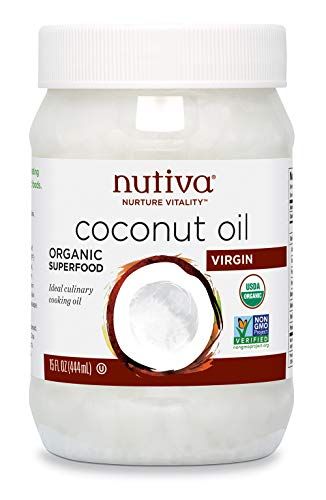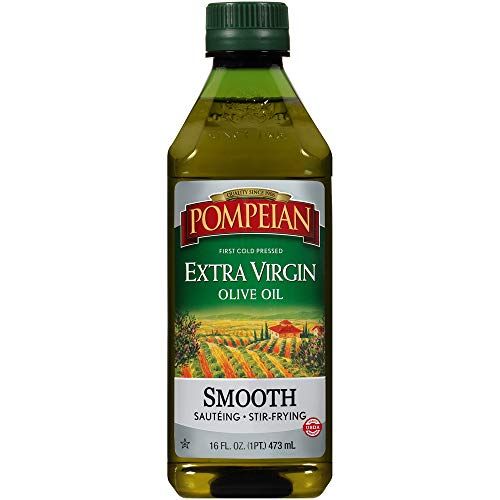
I'm Begging You—Please Don't Use Petroleum Jelly As Lube
04/09/2020Ah, lube. This slippery tool is a major game changer—and for some an essential. What was once considered an embarrassing sex add-on on is, these days, routine, says Alyssa Dweck, MD, a gynecologist in New York. And it’s not too surprising since it can take your orgasm up a notch by easing penetration and minimizing friction so you can last longer, plus it’s always ready to step in when you’re facing a dry situation down there (it happens) and need a quick fix. Of course, in order to enjoy all these perks, you’d actually have to have some lube nearby. And when you don’t, it’s only natural that you’d want a DIY option when you’re totally out of the stuff and sex is on the table.
But you might want to take a beat before you reach for any old slippery household substance to take its place. In fact, experts say putting any old lube substitute up there is a major no-go. Even seemingly harmless stand-ins can contain allergens, deteriorate your skin, or interfere with condoms, says Maureen Whelihan, MD, an ob-gyn at the Center for Sexual Health and Education.
The key to finding the right sub when you’re in a pinch is all in the ingredients. They’ll have to be organic, easy to wash out, and have a far off expiration date. Ahead, examples of every substitute that seems like it would be a good fit, but absolutely should never go anywhere near your vagina. And when you’re done committing those to memory, you’ll find the subs with the experts’ seal of approval.
Substitutes You Should NEVER Use
1. Baby Oil
Not only can it quash a condom’s effectiveness, but using baby oil in your vagina can increase your risk of developing a yeast infection, saysLauren Streicher, MD, an associate professor of clinical obstetrics and gynecology at Northwestern University Feinberg School of Medicine and author of Sex Rx: Hormones, Health, and Your Best Sex Ever. (A study published in the journal Obstetrics and Gynecology found a link between the intravaginal use of baby oil and Candida species colonization, which can lead to a yeast infection.)
2. Shortening
This stuff actually makes for a terrible lubricant, says Streicher. “It’s not all that slippery, so for most women, it’s not effective,” she says. And since it hasn’t been specifically formulated for vaginal use, she says there’s always a chance that it could irritate your vagina. Plus, since this cooking staple is oil-based, it’s not condom-compatible and will cause the latex to breakdown.
3. Spit
It’s there and it’s wet, so it makes sense that you’d consider using it as a lube when you’re in a bind. But Streicher says it’s not slippery enough to be an effective lube. So you’re just wasting your time (and saliva). Plus, spit facilitates the transmission of STDs and could introduce infection into your vagina, just as unprotected oral sex can, adds Jason James, MD, medical director at Miami’s FemCare Ob-Gyn.
4. Petroleum Jelly
It looks like lube, sure, but petroleum-based products can lead to infection, Whelihan says. A study published in the journal Obstetrics and Gynecology found that women who had used petroleum jelly as lube in the past month were more than twice as likely as non-users to have bacterial vaginosis. And, like other oil-based lubes, it can screw with condoms.
5. Lotion
There are a lot of potential irritants in lotions, like perfumes and propyl glycols (the water-soluble compounds that help lotion stay moist), which can cause swelling, puffiness, and general irritation down there (ouch!), says Whelihan.
6. Egg Whites
Besides having to crack open a few eggs, which will just make breakfast the next day a hassle—egg whites are a no. Are they goopy and slippery? Yup. But they’re also perishable, says Dweck. If you eggs have gone bad and you don’t know it you end up with a contaminated or rancid substance inside you, which could cause infection. She admits, “plenty of women use this stuff without any problem whatsoever, but the ones I see in my office are those who have add things gone awry,” so there’s always a chance and she doesn’t recommend it’s one you take.
7. Butter
Butter is a bad move, too, says Dweck. There’s a chance you might not even realize it’s gone bad since it’s, you know, in between your legs rather than inside you mouth. And even if you taste it first, it’s the oils in butter can have a destructive effect on condoms.
Safer Natural Substitutes You Can Use

8. Coconut Oil
“Coconut oil is a favorite of lots of women,” Dweck previously told Women’s Health. Beyond the fact that it smells and tastes good, it’s also easy to use since it’s a solid at room temperature and turns into a liquid with warmer temps (like your body heat).
Just keep in mind that it can deteriorate latex condoms, says Whelihan, so don’t pair these two during sex.
9. Pure Aloe Vera
When it comes to a natural grab-and-go lube, aloe vera is a great choice. Just be sure that it’s actually aloe vera, because some aloe products include ingredients that could irritate your vagina, advises women’s health expert Jennifer Wider, MD. Bonus: This one is totally safe to use with latex condoms.

10. Olive Oil
“Olive oil has an been an old standby for some time,” says Dweck. For a the best ~feel~, go for the extra virgin stuff since it’s thinner and will spread more quickly and easily. But, she warns, if you’re relying on a condom, don’t go for olive oil since it will interfere with it. The same goes for canola and sesame oils, which Dweck says are acceptable subs, too.
11. Vitamin E Oil
If you have a container of vitamin E jelly capsules somewhere at home, pop a few and spread the oil as needed, says Dweck. This oil is a little on the thicker and stickier side, but if it’s your only option, go for it. Reminder: The oil will pretty much make your condom ineffective, so ditch this idea if you’re using one.
Source: Read Full Article

